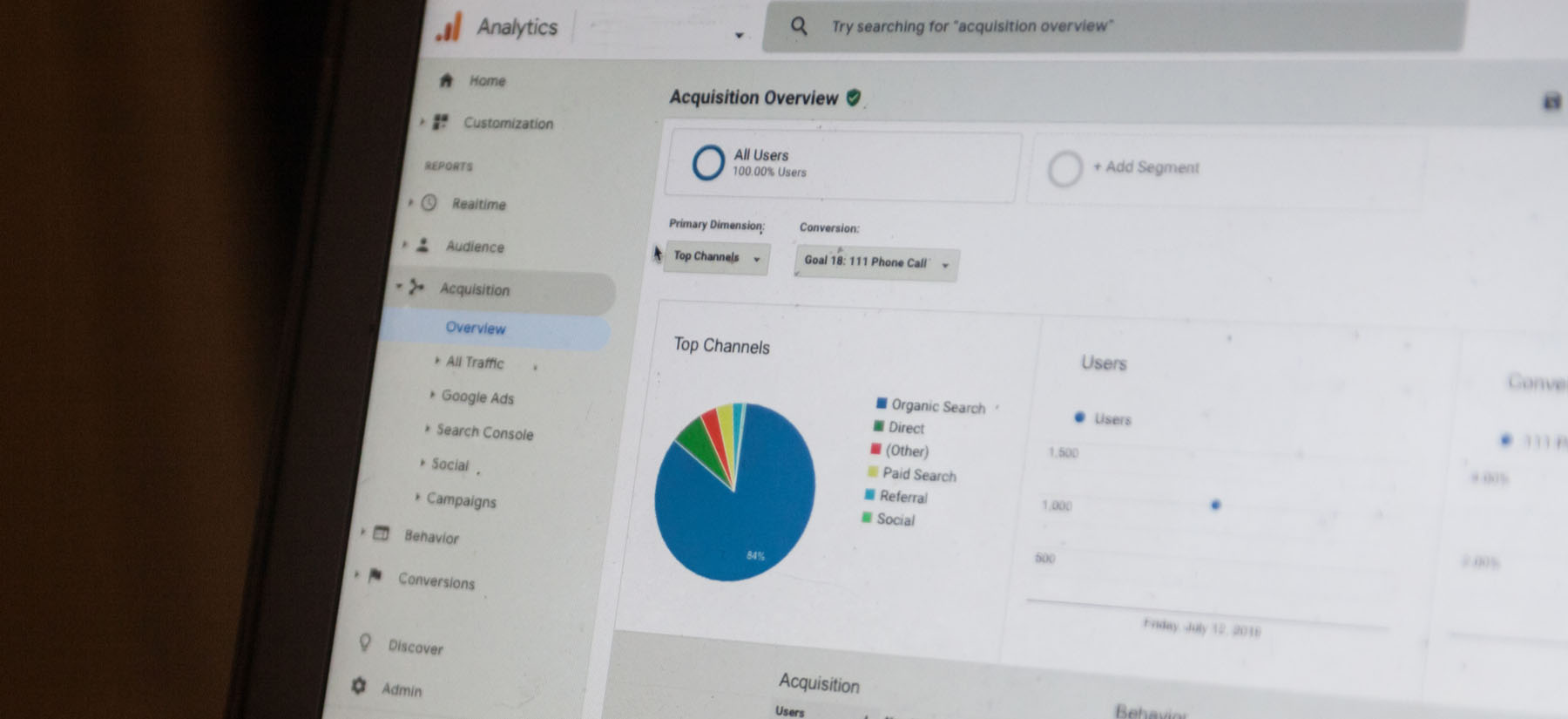If your website uses Google Analytics to track website data, then pay close attention.
Google recently announced they will be sunsetting Google Analytics Universal on July 1st, 2023. That’s right! At that time, all standard Google Analytics Universal properties will stop processing data.
That might sound like a long way away, but all businesses should start taking steps now to ensure their website is still recording analytic data. The options are simple, onboard a new website analytics provider or migrate to or set up a Google Analytics 4 instance—just don’t use their upgrade feature (more on that below). Either decision will force companies to relook how they track their website, but for the sake of this article we will be discussing Google Analytics 4.
What’s Different in Google Analytics 4
Since the announcement of Google Analytics 4 in October 2022, many businesses and agencies have been slow to adopt it. By putting a drop-dead date on Google Analytics Universal, it forces everyone to start taking Google Analytics 4 seriously and increasing adoption rates.
At the end of the day, Google Analytics 4 will actually be an improvement on your data. Google Analytics 4 differs in that it relies on an event model for tracking valuable information. Event-based measurements track IDs differently than the method used by Google Analytics Universal, which relies on pageviews and sessions. Google Analytics 4 uses metrics such as pageviews as events that trigger data tracking. This allows Google Analytics 4 to create a single-user journey from all the data associated with that specific ID.
Google Analytics 4 will also automatically track key events such as page click, file download, video view, and more. However, if you have set up Goals within Google Universal Analytics, you will need to spend the time recreating these from scratch in Google Analytics 4.
Luckily Google just announced they will be rolling out the ability to import Google Universal Analytics Goals to Google Analytics 4 Conversions. However, you will still need to make sure that all event data being pushed into the data layer matches.
As mentioned earlier, it is not recommended you “Upgrade” your current Google Universal Analytics profile to Google Analytics 4. Instead create a new parallel Google Analytics 4 profile. This is because the data measurements protocols are different and comparing data will not always match up. Creating a parallel instance give you the opportunity to review and compare analytics data from both Google Analytics and Google Analytics 4. Also, upgrading as of now will not move over your goal tracking.
What You Need to Do
If you have spent any time in Google Analytics 4’s user interface, you will know it is challenging to navigate to see more detailed data. For example, trying to quickly find your top organic landing page can send you down a rabbit hole of clicks and dead ends. However, I am optimistic that the user interface for Google Analytics 4 will improve dramatically over the next 12 months as users provide more feedback.
In summary, please don’t freak out. You have time, but here are four action items you should be considering immediately:
- Talk to your agency or internal marketing teams about this update
- Create a parallel instance of Google Analytics 4—do not use their upgrade feature!
- Recreate all your Goals as Conversion in Google Analytics 4
- Spend 30 minutes a week within Google Analytics 4 user interface
Google Analytics 4 has its advantages and disadvantages, but like all new forced changes, it will take time to get used to. So, the sooner you act, the better!









